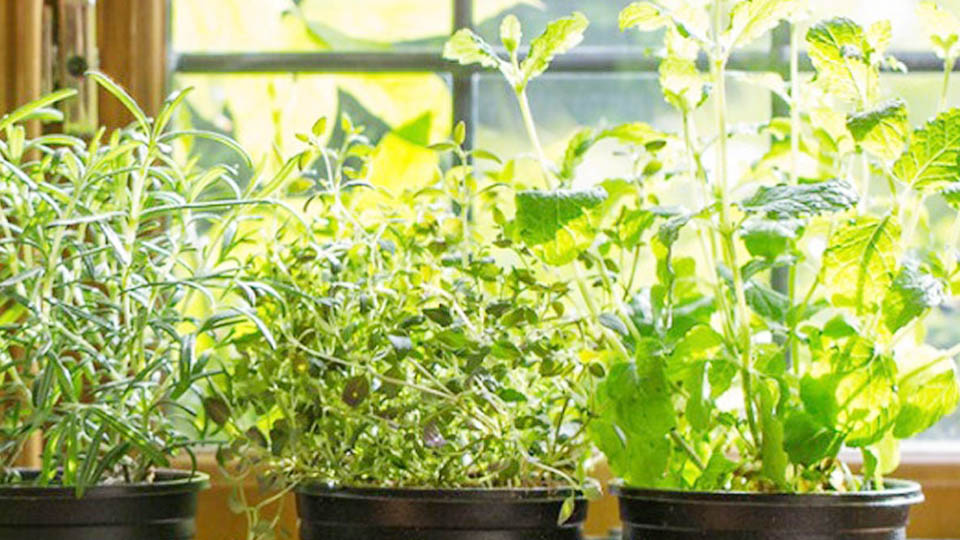Growing fresh herbs at home is such a rewarding experience. If you’re using them to flavor your dishes, make homemade teas, or simply add a touch of green to your space, there’s something special about having them at your fingertips. But if you’ve ever tended to herbs, you know the struggle of keeping bugs away without resorting to harsh chemicals.

Image by gardeningknowhow
I’ve learned a lot about protecting herbs naturally. Bugs can wreak havoc on your plants, turning vibrant basil leaves into holey scraps or leaving your parsley looking sad and wilted. If this sounds familiar, don’t worry—you’re not alone, and there are plenty of natural ways to tackle the problem.
I’ll walk you through methods that have worked for me to keep bugs off my herbs. These solutions are safe, environmentally friendly, and easy to implement, so let’s dive in.
Why Are Bugs Attracted to Herbs?
Bugs love herbs for the same reasons we do—their aroma, tenderness, and nutritional value. Many herbs have natural oils that attract pests like aphids, spider mites, and whiteflies. These insects feed on the leaves, stems, and even roots, damaging the plant and sometimes spreading diseases.
Understanding why bugs are drawn to your herbs is the first step to managing them. Healthy plants are less likely to attract pests, so keeping your herbs in good condition is key.
Start with Healthy Soil
Healthy soil is the foundation of healthy plants. Bugs are more likely to attack weak or stressed plants, so giving your herbs the nutrients they need can make a big difference.
- Use Organic Compost: Enrich your soil with organic compost to improve its nutrient content.
- Ensure Proper Drainage: Herbs like rosemary and thyme thrive in well-draining soil. Poor drainage can lead to root rot, attracting pests.
- Rotate Your Plants: Rotating your herbs to different spots each growing season can prevent pests from settling in.
Choose Bug-Resistant Herbs
Some herbs naturally repel bugs due to their strong scent or oils. Planting these alongside more vulnerable herbs can create a natural barrier.
Bug-Resistant Herbs
- Mint: Repels ants and aphids but can attract certain beetles, so keep an eye on it.
- Lavender: Its scent deters moths, fleas, and flies.
- Chives: Known to repel carrot flies and aphids.
- Rosemary: Keeps cabbage moths and slugs at bay.
Use Companion Planting
Companion planting is a method where you grow plants that benefit each other side by side. Certain plants can naturally repel pests from your herbs.
Examples of Companion Plants for Herbs
| Herb | Companion Plant | Benefit |
|---|---|---|
| Basil | Marigolds | Repels whiteflies and mosquitoes. |
| Dill | Cucumbers | Attracts beneficial insects. |
| Parsley | Tomatoes | Keeps aphids away from tomatoes. |
| Cilantro | Anise | Repels spider mites. |
Companion planting is not only functional but also adds beauty to your herb garden.
Keep Your Herbs Well-Pruned
Pruning your herbs regularly helps them grow bushier and healthier while also removing areas where pests like to hide.
- Trim Dead Leaves: Bugs are often attracted to decaying plant matter.
- Thin Out Crowded Plants: Allow airflow between plants to reduce the chance of mold and pests.
- Harvest Frequently: Regular harvesting keeps your herbs thriving and less appealing to bugs.
Use Homemade Natural Sprays
One of my favorite methods to deter bugs is using homemade sprays made from ingredients you probably already have at home.
Garlic Spray Recipe
- Crush a few garlic cloves and soak them in water overnight.
- Strain the liquid and pour it into a spray bottle.
- Spray it on your herbs, focusing on the undersides of the leaves.
Soap Spray Recipe
- Mix a few drops of mild liquid soap with water.
- Spray it on your plants to get rid of soft-bodied insects like aphids.
These sprays are safe for your plants and won’t harm beneficial insects like bees or ladybugs.
Encourage Beneficial Insects
Not all bugs are bad! Some insects, like ladybugs and lacewings, can actually help control the pest population.
How to Attract Beneficial Insects
- Plant flowers like daisies and sunflowers near your herbs.
- Avoid using harsh chemicals that kill both pests and helpful insects.
- Provide a water source, like a shallow dish with pebbles, to keep them around.
Mulch to Prevent Pest Infestations
Mulching is another effective way to deter bugs naturally. A good layer of mulch around your herbs helps in several ways:
- Prevents soil-borne pests from reaching the leaves.
- Retains moisture and regulates soil temperature.
- Discourages weeds that harbor pests.
Use organic mulch like straw, wood chips, or dried leaves.
Try Natural Deterrents
There are many natural deterrents you can use to keep bugs away. Some of these may already be in your kitchen:
- Coffee Grounds: Sprinkle coffee grounds around your herbs to repel ants and slugs.
- Crushed Eggshells: These create a barrier that snails and slugs won’t cross.
- Cinnamon Powder: Deters ants and gnats.
Use Physical Barriers
Sometimes, the simplest solution is to block pests from reaching your herbs altogether.
Physical Barriers You Can Use
- Netting: Cover your herbs with fine mesh netting to keep bugs out while allowing sunlight and air in.
- Row Covers: Lightweight fabric covers can protect your plants from flying insects.
- Sticky Traps: Place these near your herbs to catch small flying pests like whiteflies.
Watering Techniques to Prevent Bugs
Overwatering is a common mistake that can attract bugs. Here’s what I’ve learned:
- Water Early in the Day: This allows the leaves to dry before night, reducing the risk of mold and pests.
- Use Drip Irrigation: Drip irrigation waters the roots directly, keeping the leaves dry and less inviting to bugs.
- Avoid Standing Water: Empty trays and pots to prevent mosquito breeding.
Rotate Your Herbs
Rotating your herbs to different spots each season can confuse pests and prevent infestations. Bugs often target specific plants, so moving them disrupts their life cycle.
Keep Your Garden Clean
A tidy garden is less attractive to pests. Remove weeds, fallen leaves, and other debris regularly to reduce hiding spots for insects.
My Personal Experience
When I first started growing herbs, I struggled with aphids and spider mites. It felt overwhelming, but once I implemented these natural solutions, my garden transformed. Companion planting with marigolds and using garlic spray were game-changers.
I also began pruning regularly and added mulch to keep pests at bay. Over time, my herbs thrived, and now, I enjoy fresh, bug-free basil, parsley, and rosemary from my garden.
Conclusion
Keeping bugs off your herbs naturally is not only possible but also highly effective. With a little effort and these eco-friendly methods, you can enjoy healthy, thriving plants without resorting to chemicals.
If it’s using natural sprays, attracting beneficial insects, or companion planting, there’s a solution for every herb grower. Take the time to observe your plants, and don’t be afraid to try different methods until you find what works best for your garden.
A bug-free herb garden is a happy herb garden, and the rewards of fresh, homegrown herbs are well worth the effort.
FAQs
What is the best natural spray for keeping bugs off herbs?
Garlic or soap sprays are effective and easy to make at home.
Can I use essential oils to repel bugs from my herbs?
Yes, oils like peppermint or neem can be diluted and sprayed on plants to deter pests.
How do I keep slugs away from my herbs?
Crushed eggshells or coffee grounds around the base of your plants work well to repel slugs.
Is mulching safe for herbs?
Yes, organic mulch not only protects herbs but also deters pests.
What are the benefits of companion planting for herbs?
Companion planting can naturally repel pests and improve the health of your garden.

I’m Marissa Lynn, the proud author behind GardeningProperty.com! With a deep-rooted passion for all things green and growing, I’ve dedicated years to mastering the art and science of gardening.
From nurturing vibrant flowerbeds to cultivating thriving vegetable gardens, I love sharing practical tips, creative ideas, and proven techniques to help others create their dream outdoor spaces.